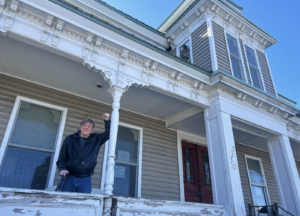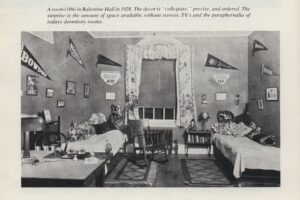
According to Pew Research Center, the number of Muslims in the world is expected to grow from its current number of 1.6 billion, 23.2 percent of the global population, to 2.8 billion in 2050 (29.7 percent). With the increasing number of Muslims in the world, the effects of Islamophobia, a dislike of or prejudice against Islam or Muslims, is growing as well. A few reasons behind Islamophobia are negative stereotypes of Muslims and improper understanding of Islam.
“What happens in the United States when they talk about women in Iran, they ask ‘can they drive?’ It is Saudi Arabia. There are 50 Muslim countries in the world and out of them, only in Saudi Arabia women cannot drive,” Reza Jalali, writer of “The Poets and the Assassin,” said. “The Poets and the Assassin” is a play about women in Iran that was performed at the University of Maine this past week. “Most Americans, not the informed Americans, think that in every Muslim country women cannot drive. One can not judge entire community of Muslims by actions of one country.”
Author of several books and a coordinator of the Office of Multicultural Student Affairs at the University of Southern Maine, Iranian-born Jalali wrote “The Poets and the Assassin” in 2010. It is a play that shines a spotlight on women in Iran, one of few Islamic countries where Shia Muslims are in the majority, constituting over 90 percent of the population, according to the CIA.
Since the 19th century, women in Iran have been prominent drivers of national movements for liberation and democracy, yet, their stories of courage, resistance and survival are not widely known. Instead, female descendants of the Persian Empire are often generalized as being oppressed.
“Especially Westerners, sadly, have this monolithic black and white picture of Muslim women. Good Muslim women and bad Muslim women. In some Muslim societies, women are running the country, in some [they] are oppressed and there is all in between,” Jalali shared.
Supported primarily by the UMaine Humanities Center, the School of Policy and International Affairs, the Cultural Affairs/Distinguished Lecture Series, and the Honors College, the play was presented to students and community members last Thursday, April 7 in Minsky Recital Hall.
A five-act play, “The Poets and the Assassin” consisted of a five-member female cast played by Bates College students. The actors portrayed prominent women in Iranian society, from Scherhazade, a legendary queen and the storyteller of “One Thousand and One Nights,” to modern-day female Iranian poets, activists and students like Neda Agha-Soltan. Killed by a gunshot on June 19, 2009, 26-year-old Agha-Soltan was protesting against the disputed election of President Mahmoud Ahmadinejad in the streets of Tehran, the Iranian capital.
“I was inspired by her bravery and wanted this story to be told outside of Iran. She was not doing anything wrong by challenging the stolen elections. She died for us, and I feel that generations from now, Iranians should remember who she was and what she did,” Jalali said.
The actresses wore chadors, traditional Muslim garments that cover women’s bodies from head-to-toe, concealing all or part of the faces. The characters spoke of informing different topics in Iran in which women played important roles, from politics and protests to love and art. Jalali wanted to share with the audience both the personal and communal, the private and public lives of Iranian women who live contradictory and complex lives in a traditional patriarchal society.
“In public, I do as I am told, in private, I do as I wish,” Kathleen Stone, an actress in the play, said during her monologue titled “Daughters of Iran.”
“It [the play] is a fascinating read, and even more fascinating onstage,” Emily Haddad, dean of the UMaine College of Liberal Arts and Sciences, said.
The play was followed by an open discussion between the audience and the writer, director and cast members. A few members of UMaine’s Iranian group were present in the audience, and shared their disagreement with the author’s portrayal of women in their homeland.
“We are free in my country, and I choose to wear a hijab,” Somayeh Khosroazad, a PhD. student from Iran, said. “This is not a problem of Islam. If I want to talk about other religions, I can find negative points about those religions, too.” She urged the audience to not rely on theatre’s and the media’s portrayals of Islam.
“If you want to be honest, and want to find good things about other religions, study it, not just for months, but several years. More than 50 percent of women in Iran are engineers. You should come to Iran and see that everything is normal. As an Iranian girl, I was never never limited, I was always free, and I am successful. I thank God for my family and country,” Khosroazad shared. The audience has applauded her response.
“Every chance I get, I say it [the play] should have been written by an Iranian woman, because for years, I waited for a woman to write about the story of Iranian women’s courage. I understand that in my culture, men speak for women and that is wrong. In this case, I take the blame,” Jalali said. “I wish it was written by Iranian women, but I had to write it, because the story needs to be told.”
First-year UMaine student Nisha Patel came to the play to learn more about different cultures and diversity of religion.
“It [the play] fascinated me. You do not hear about all these different stories and narratives on [an] everyday basis,” Patel said. She also enjoyed the discussion after the play.
“I really liked the confidence and the power in [the] actor’s voices. It was not just during the play but in the discussions also. They were very straightforward, clear and calm. You could see the bravery in their faces. It was raw, genuine and inspiring. It gave me confidence,” Patel shared.
“This play gave an opportunity to engage in a conversation. I do not think the play was supposed to necessarily stand for single experience,” Melissa Ladenheim, associate dean of the Honors College, said. Ladenheim played an instrumental role in bringing this play to UMaine.
“It is a distillation and amalgamation of experiences. The setting is ghost-like, and they [the characters] are brought to life through story. When you think about it … these stories are what live on,” Ladenheim said. “Even though they are dark, this play gave examples of the ways in which, throughout history, women have found agency. However oppressive the regime is, women still have agency, and this is the important thing. It is not monolithic, it is complicated.”











